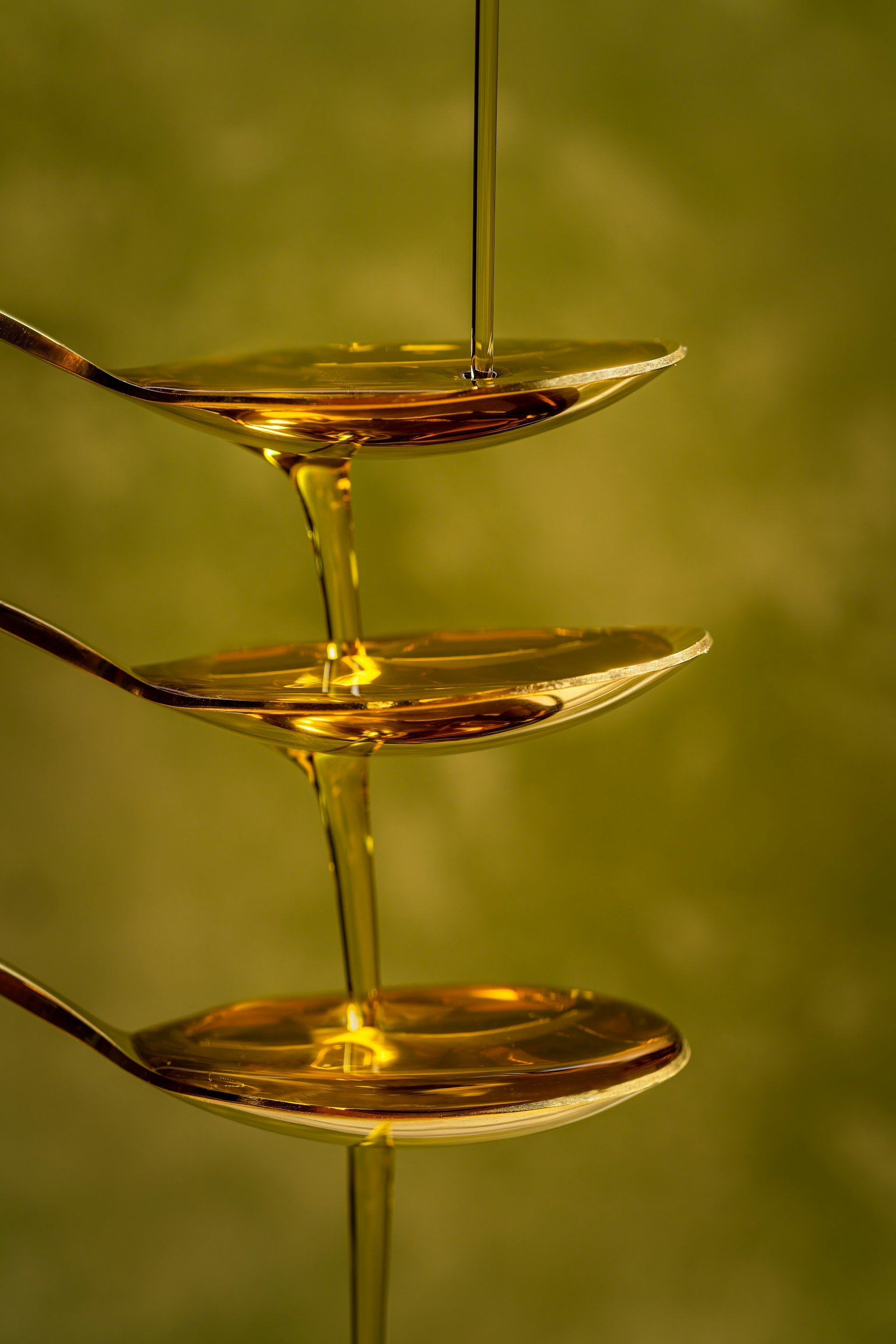The PUFA Problem — How Industrial Fats Hijacked Our Hormones
Image via Pinterest
For decades, we were told to fear fat. And yet, it’s often the very thing we’re missing. This post explores the rise of polyunsaturated fats and fertility disruption—how industrial seed oils have inflamed our systems, destabilized hormones, and quietly undermined egg and sperm quality. We’ll also explore the return to stable fats: butter, ghee, coconut oil, tallow. They’ve been demonized, but they are sacred. And your fertility knows the difference.
Let’s talk about the oils hiding in your pantry that might be quietly sabotaging your fertility. Yes, I’m looking at you, canola and soybean.
Polyunsaturated fatty acids (PUFAs)—especially those from industrial seed oils—have been marketed as heart-healthy. But their darker side? They're highly prone to oxidation, promote inflammation, and can disrupt the hormonal harmony required for conception.
PUFAs integrate into our cell membranes, altering the very language of cellular communication. This matters because healthy eggs, sperm, and embryos rely on membrane fluidity and mitochondrial function—two things negatively influenced by excessive PUFA intake.
Studies show that high levels of linoleic acid (the primary PUFA in seed oils) correlate with reduced progesterone production and ovulatory dysfunction (Romm, 2021). Additionally, oxidative stress from these oils impairs egg quality and can alter embryonic development (Agarwal et al., 2005).
These industrial oils are cheap, ubiquitous, and tucked into nearly every processed food, salad dressing, and granola bar. Even restaurants that tout health-conscious menus often cook with them because of their high smoke point and long shelf life.
Yet our ancestors didn’t consume them—not in the forms or quantities we do today. Their fats came from whole, natural sources: pastured animal fat, fish oils, nuts, seeds, and seasonal fruits like avocados. Their reproductive systems thrived.
The oxidative instability of PUFAs means they generate harmful aldehydes when exposed to heat, light, or oxygen—by the time they’re bottled and shelved, many are already rancid. And when they infiltrate the delicate tissues of the ovaries or testes, the damage ripples across generations.
What to do instead? Embrace stable fats: grass-fed butter, tallow, coconut oil, and even good ol’ olive oil in moderation. Fertility isn’t just a hormone issue—it’s a cell membrane and mitochondria issue too. These traditional fats are not only nutrient-dense but incredibly satiating, helping regulate blood sugar and reduce inflammation.
Let’s reclaim our ancestral fat wisdom, one buttery step at a time. Because in every spoonful of tallow or smear of ghee, you’re telling your future baby: I’ve got you.

